Marketers often fall into the trap of treating generations as monoliths. The topic, “How to Appeal to Millennials”, has appeared on many a conference agenda and marketing plan, often accompanied by a stereotypical checklist of what defines a millennial mindset and what it takes for brands to resonate with them.
I like how Mark Ritson frequently skewers this practice. Here’s a takeaway from a recent article in Marketing Week called “Only crap marketers mistake stereotypes for segments”:
“The whole myth of the millennial segment makes a mockery of just about every principle of basic segmentation. Clearly millennials as a generational cohort do exist – they are the two billion people on the planet born between 1981 and 2000. But the idea that this giant army all want similar stuff or think in similar ways is clearly horseshit. Similarly, the idea that they also differ from other older cohorts in significant ways is superficially persuasive but turns out to be equally nonsensical.”
Mark was responding to the announcement by AirFrance that it was launching a new “airline for Millennials” in December called Joon. Complete with VR headsets, a rooftop bar, stylish flight attendants, and integrations with AirBnB, Joon was designed expressly for Millennials. Here’s how AirFrance announced it:
“We started with our target customer segment, the millennials, to create this new brand that means something to them … This generation has inspired us a lot: epicurean and connected, they are opportunistic in a positive sense of the word as they know how to enjoy every moment and are in search of quality experiences that they want to share with others. Joon is a brand that carries these values.”
Joon represented this “aspirational Millennial” in an animated gif (of course):

Many marketers pursue a Joon-like strategy for their brands to appeal to younger generations. And yet, it’s exactly those cliché, over-generalized strategies that can turn off the very audiences they’re trying to reach.
Here are a few related cartoons I’ve drawn over the years:
“Marketing to Younger Generations” August 2015
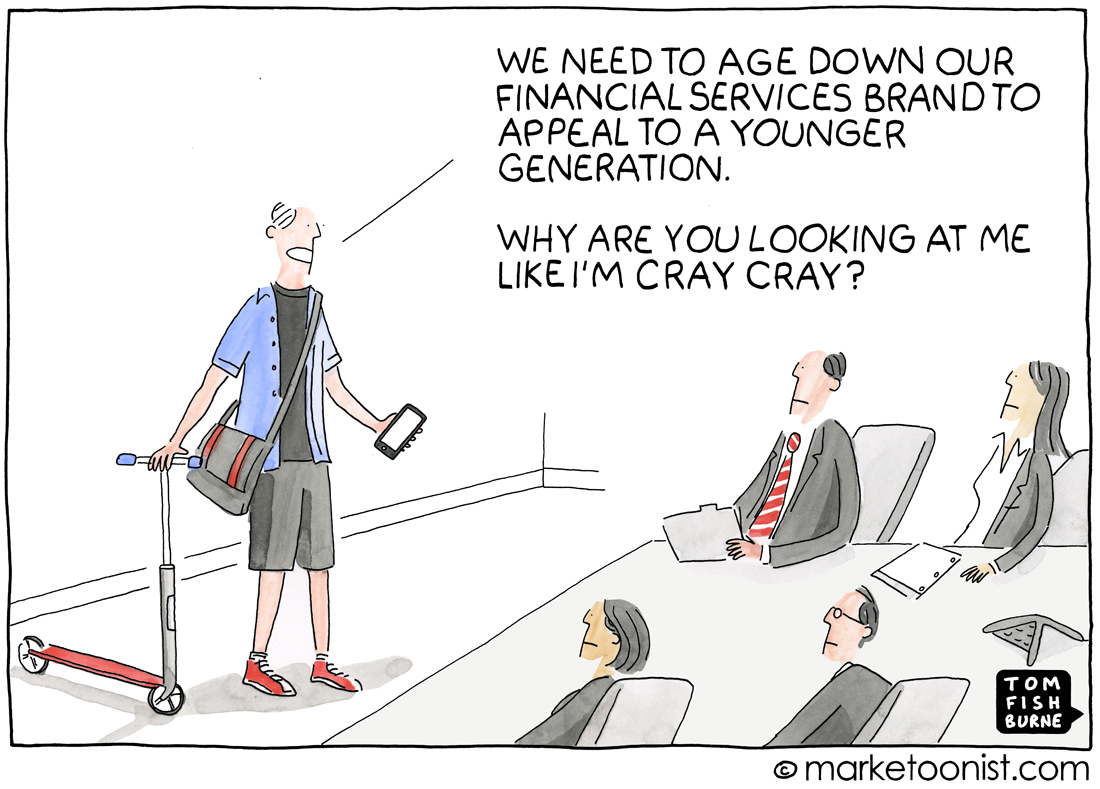
“Marketing to Generation Z” March 2015
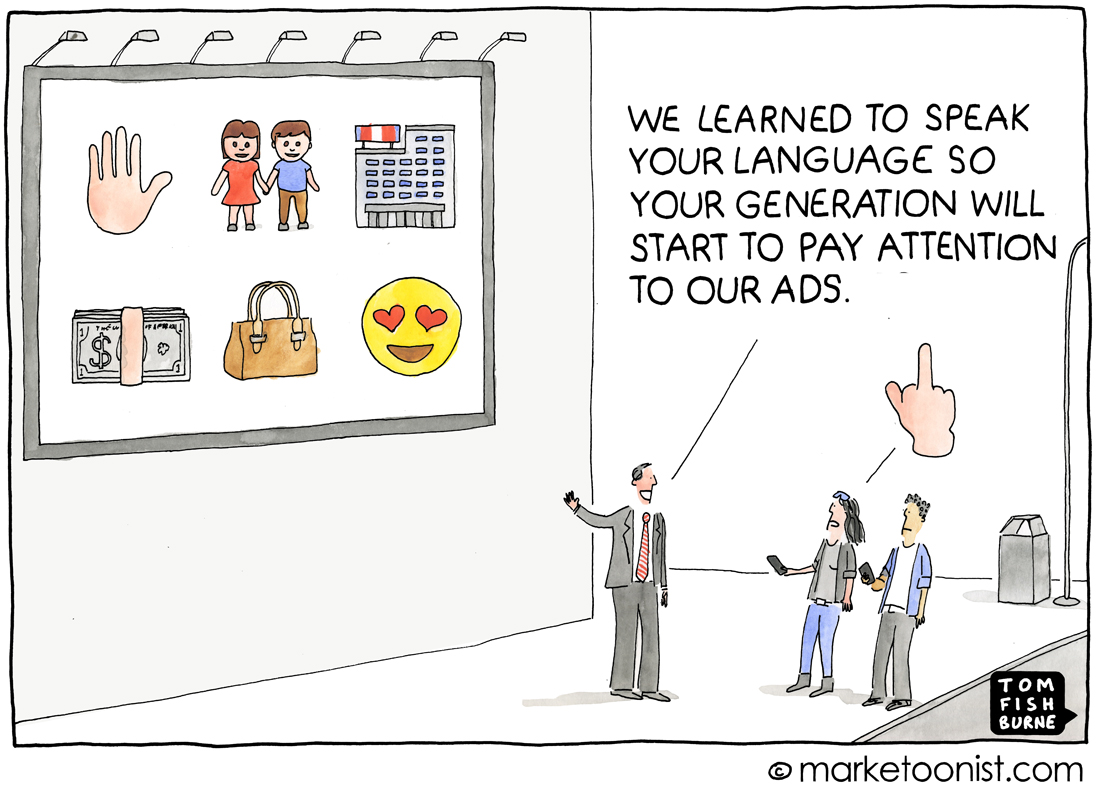
“The Market Research Zoo” June 2003
(wow, this is a particularly early one)
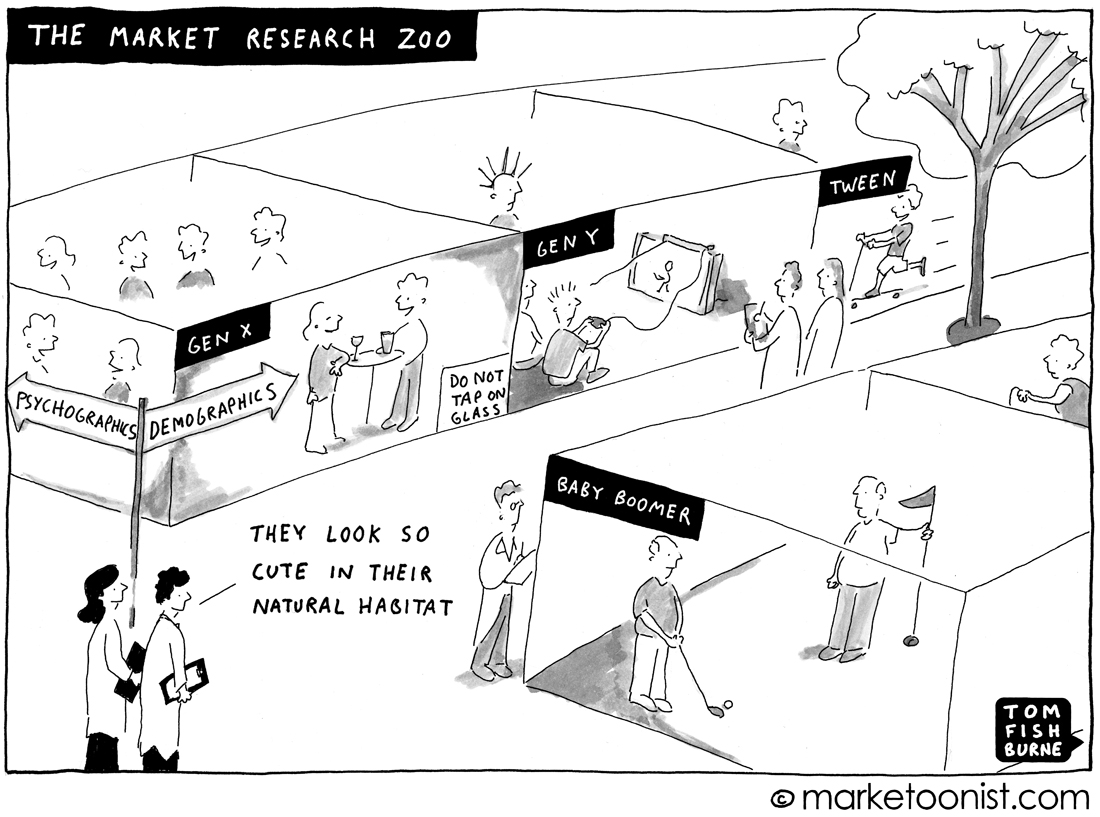
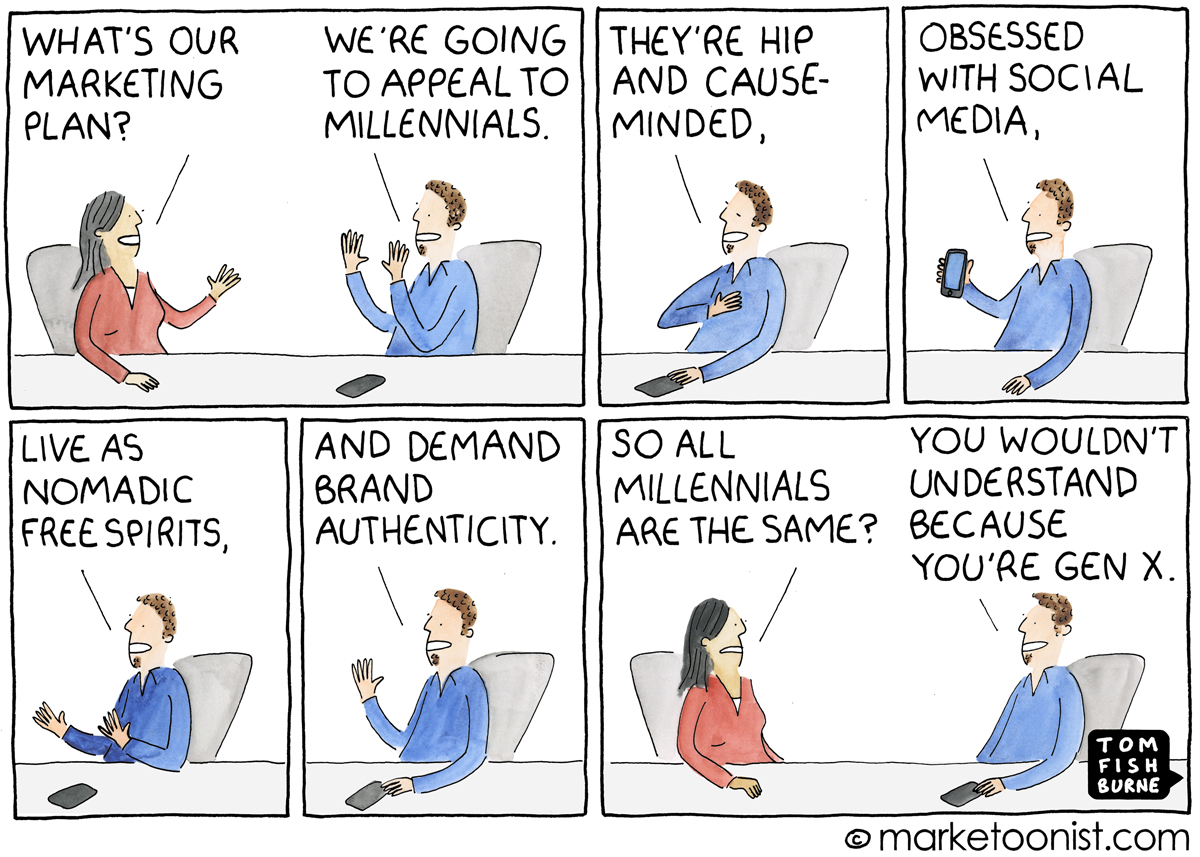
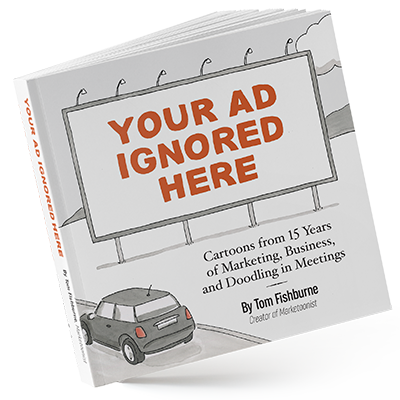
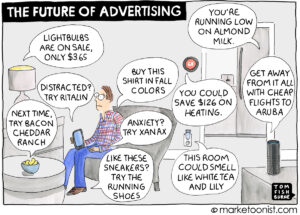
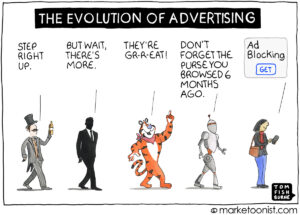
Bill Hudgins says
I found this piece rather amusing relative to the content in this most recent email and wanted to share . . .